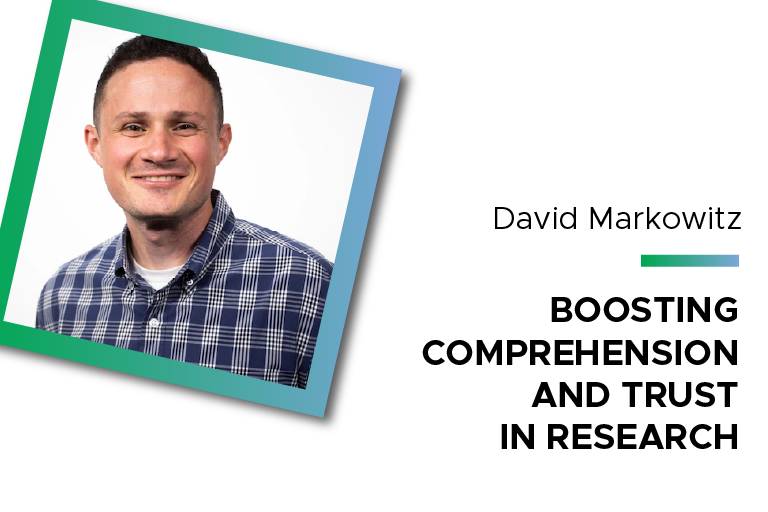Story adapted from an article originally shared on MSU Today.
Can artificial intelligence make science feel more…intelligible? That’s the question one ComArtSci researcher is asking in his search for simplicity.
David Markowitz, Ph.D., an assistant professor in the Department of Communication, believes AI-generated summaries of science communication can help translate dense concepts and confusing jargon into more simple explanations. In a recent study published in PNAS Nexus, Markowitz argues AI-generated summaries both improve the public’s understanding of science and present scientists in a more favorable light.
Using GPT-4 by OpenAI, Markowitz created “significance statements;” pared-down summaries of scientific papers. Through the use of more commonly used words, the AI-generated summaries were deemed easier to comprehend based on a readability index, versus those written by the actual researchers. Markowitz found his study participants rated the scientists whose work was described in simple terms as more credible and trustworthy than the scientists whose work was described in more complex terms.
Perhaps the most surprising find of the study came when Markowitz asked participants who they believed wrote each summary.
“Ironically, they thought the more complex ones were written by AI and simpler ones were written by humans,” he said.
Markowitz notes that as the academic publishing field continues to establish norms regarding the use of AI, its role in science communication is likely to expand.
There are also ethical considerations at play regarding the role of AI in science communication. Markowitz warns simplified content might lead to misunderstandings or a failure to recognize the nuances of the research.
“There’s always the chance of errors, too, if no one pays close attention,” Markowitz said. “Additionally, transparency is critical. Readers should be informed when AI is used to generate summaries to avoid potential biases.”
While AI is emerging as a powerful tool, Markowitz says scientists themselves must continue to be responsible for the clarity of their own work.
“(They) could also achieve the same goals by working harder to minimize jargon and communicate clearly,” Markowitz said. “No AI necessary.”
By Kevin Lavery
